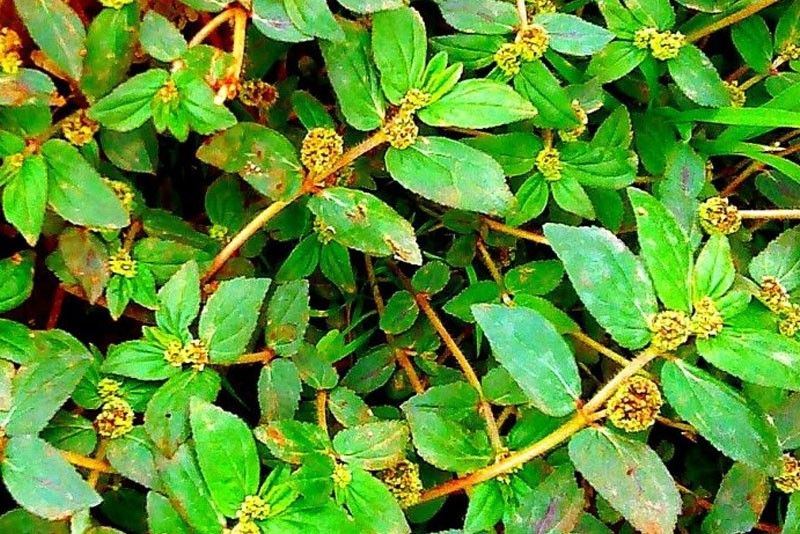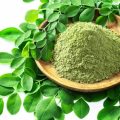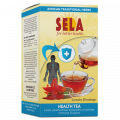Tawa-tawa is a plant that is commonly found in the Philippines and some parts of Asia. Its scientific name is Euphorbia hirta. In English tawa tawa is known as asthma weed, snakeweed, or pill-bearing spurge.
In traditional Philippine medicine, tawa-tawa is used as a natural remedy for dengue fever, a mosquito-borne viral infection that can cause severe flu-like symptoms and potentially fatal complications. There is some evidence to suggest that tawa-tawa may have antiviral and immune-boosting properties that could help alleviate symptoms of dengue fever and support the body’s natural defenses against the virus.
Tawa tawa has also been used for its supposed medicinal properties, such as treating respiratory tract infections, diarrhea, fever, and asthma. Some studies have investigated the plant’s potential as an antiviral, antimicrobial, and anti-inflammatory agent.
However, it is important to note that more research is needed to fully understand the potential benefits and risks of using tawa-tawa as a treatment for dengue fever or other health conditions.
How To Use Tawa Tawa For Medicianal Purposes
Tawa-tawa medicinal herb can be used in the following ways:
- Make tawa-tawa tea: The most common way of using tawa-tawa is by making a decoction, which is a concentrated tea-like preparation. To make a decoction, boil 1 cup of water and add 5-7 leaves of tawa-tawa. Let it simmer for 10-15 minutes. Strain the liquid and drink it while it is still warm. This decoction can be taken up to three times a day to help alleviate symptoms of dengue fever, diarrhea, asthma, and other respiratory ailments.
- Tawa-tawa capsule or tablet: You can purchase tawa-tawa capsules or tablets in a health store. Take the recommended dosage as directed by the manufacturer. Tawa-tawa supplements, capsules or teas are available in some health stores or online. However, it is important to note that the safety and efficacy of these products have not been fully evaluated.
- Tawa-tawa extract: You can also use tawa-tawa extract. Add a few drops of the extract to a glass of water and drink it.
- Tawa-tawa leaves: You can also chew on tawa-tawa leaves directly. Take 2-3 leaves and chew them thoroughly. Do this twice a day.
- Poultice: A poultice made from fresh tawa-tawa leaves can be applied topically to the skin to help relieve pain and inflammation. To make a poultice, crush a few tawa-tawa leaves and apply them directly to the affected area. Cover the area with a clean cloth or bandage and leave it on for a few hours. This can be repeated as needed
- Inhalation: Tawa-tawa can also be used for steam inhalation to help relieve respiratory symptoms such as congestion, cough, and asthma. To do this, add a handful of tawa-tawa leaves to a pot of boiling water. Remove the pot from the heat and inhale the steam, being careful not to burn yourself. This can be repeated as needed.
However, tawa-tawa may interact with certain medications and may not be suitable for people with certain health conditions.
Tawa-Tawa Medicinal Uses and Health Benefits
Tawa-tawa has been widely used for its medicinal properties in many tropical countries, including the Philippines, India, and Malaysia. It has been used in traditional medicine for centuries and has many health benefits. Here are 10 health benefits of tawa-tawa in detail:
- Treats Dengue Fever: Tawa-tawa is known for its ability to increase platelet count in patients with dengue fever. This is due to the presence of a bioactive compound called quercetin, which stimulates the production of new platelets in the bone marrow.
- Relieves Asthma: Tawa-tawa is an effective natural remedy for asthma due to its anti-inflammatory properties. It helps to reduce inflammation in the airways, making it easier to breathe.
- Lowers Blood Sugar: Tawa-tawa has been shown to have hypoglycemic effects, which means it can lower blood sugar levels. This makes it an effective natural remedy for diabetes.
- Reduces Inflammation: Tawa-tawa has anti-inflammatory properties that can help to reduce inflammation in the body. It can be used to treat a range of inflammatory conditions, including arthritis, gout, and skin rashes.
- Treats Diarrhea: Tawa-tawa has anti-diarrheal properties that can help to reduce the severity and frequency of diarrhea. It works by reducing inflammation in the digestive tract and slowing down bowel movements.
- Boosts Immunity: Tawa-tawa has immunomodulatory properties, which means it can help to boost the immune system. This can help to protect against a range of infections and diseases.
- Improves Digestion: Tawa-tawa can help to improve digestion by reducing inflammation in the digestive tract and promoting the growth of beneficial gut bacteria.
- Treats Skin Conditions: Tawa-tawa can be used to treat a range of skin conditions, including eczema, psoriasis, and acne. It has anti-inflammatory and antimicrobial properties that can help to soothe and heal the skin.
- Relieves Pain: Tawa-tawa has analgesic properties that can help to relieve pain. It can be used to treat a range of painful conditions, including headaches, toothaches, and menstrual cramps.
- Treats Urinary Tract Infections: Tawa-tawa has diuretic and antimicrobial properties that can help to treat urinary tract infections. It works by increasing urine production and killing harmful bacteria in the urinary tract.
However, it is important to note that tawa-tawa can cause side effects in some people, and it is best to consult a healthcare professional before using it for medicinal purposes.
Tawa-tawa side effects
While tawa-tawa (Euphorbia hirta) has been traditionally used as a natural remedy for various conditions, it is important to note that it may also have some potential side effects. Here are 10 tawa-tawa side effects:
- Stomach Irritation: One of the most common side effects of tawa-tawa is stomach irritation. Consuming tawa-tawa tea or extract may cause stomach discomfort, nausea, vomiting, and diarrhea in some individuals.
- Skin Irritation: Tawa-tawa may cause skin irritation in some people. Touching or coming into contact with the leaves or sap of tawa-tawa may cause skin rashes, itching, and redness.
- Allergic Reactions: Some individuals may be allergic to tawa-tawa. In such cases, consuming or using tawa-tawa may cause allergic reactions such as hives, swelling of the face or throat, and difficulty breathing.
- Interference with Blood Clotting: Tawa-tawa may interfere with blood clotting, which can increase the risk of bleeding. Individuals taking blood-thinning medications or with bleeding disorders should avoid tawa-tawa.
- Low Blood Sugar: Tawa-tawa may lower blood sugar levels, making it unsuitable for individuals with diabetes or those taking medications to lower blood sugar levels.
- Respiratory Problems: Inhaling tawa-tawa powder or smoke from burning tawa-tawa leaves may cause respiratory problems such as coughing, wheezing, and shortness of breath.
- Kidney Damage: Consuming large amounts of tawa-tawa may damage the kidneys. Individuals with kidney problems should avoid tawa-tawa or use it under the guidance of a doctor.
- Liver Damage: Tawa-tawa may also cause liver damage in some people. Individuals with liver problems should avoid tawa-tawa or use it under the guidance of a doctor.
- Increased Risk of Cancer: Some studies suggest that tawa-tawa may increase the risk of cancer due to its high content of toxic substances called phorbol esters.
- Interference with Fertility: Tawa-tawa may interfere with fertility in both men and women. Pregnant and breastfeeding women should avoid tawa-tawa.
It is important to consult a doctor before using tawa-tawa as a natural remedy, especially if you have any underlying health conditions or are taking medications.






